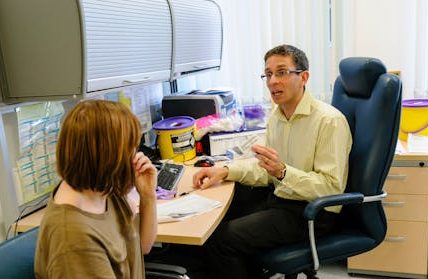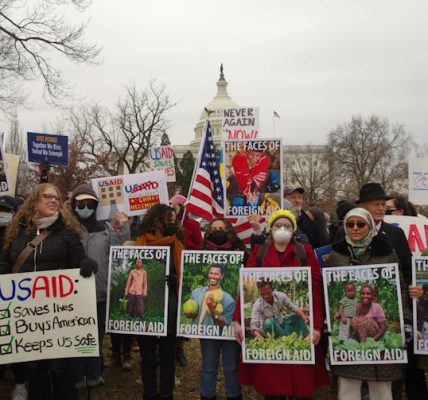Mary Dorcey: queer Irish poet illuminates a form of sexuality even the law has overlooked
It’s the tenth anniversary of the marriage referendum in Ireland on May 22. The first country to legalise same-sex marriage by popular vote, Ireland has transformed itself from a conservative stronghold to a liberal state. This transformation could not have occurred without the important contributions of activists like Mary Dorcey, one of Ireland’s most significant LGBTQ+ writers.
Dorcey began her political activism in the 1970s, having returned to Ireland after living in France and England. Having met other queer people abroad, Dorcey was struck by the repression that characterised Irish life: “The word ‘homosexual’ was not spoken or written in Ireland before the 1970s. The word ‘gay’ didn’t exist.”
Determined to break through the silence, Dorcey became a founding member of various activist groups, including the Sexual Liberation Movement at Trinity College Dublin.
One of Dorcey’s most prominent displays of early activism occurred at the Women’s Week conference at University College Dublin, where she substituted for an absentee speaker. Frustrated by the erasure of homosexuality from Irish life, Dorcey took the stage, quoting the American feminist slogan “if feminism is the theory, lesbianism is the practice”.
Mary Dorcey discusses the controversy around her statement at Women’s Week.
A headline appeared on the front page of the Irish Times the following day. It read: “Self-confessed lesbian denounces heterosexuality as sadomasochism.” While the headline caused ruptures at home, Dorcey remained an advocate of queer rights. “I wasn’t going to make any apologies,” she told the Museum of Literature Ireland. “It was their problem if they couldn’t see how beautiful we were.”
Dorcey’s unwavering commitment to breaking the silence surrounding queerness is clearly displayed in her first poetry collection, Kindling (1982). Poems like Night, for example, are explicit in their bold use of homosexual imagery:
I ask you then what am I to do with all these memories
heavy and full?
Hold them, quiet, between my two hands,
as I would if I could again
your hard breasts?
The collection made waves, with even members of the queer community commenting on its outspokenness. Dorcey has discussed how her unflinching portrayal of homosexuality worried many community members – did her candidness threaten to expose them?
Despite this, her activist tendencies prevailed, recognising the power of literature to shock readers into sociopolitical awareness, as expressed in poems like Deliberately Personal.
Deliberately Personal, read by Mary Dorcey.
One of Dorcey’s most important literary contributions is her short story collection A Noise from the Woodshed (1989). The collection debuted a year after her former Sexual Liberation Movement comrade David Norris’s landmark victory at the European Court of Human Rights, which required Ireland to decriminalise homosexual activity between men.
Lesbianism was never explicitly illegal in Ireland under its adoption of British legal codes, which feared that writing it into law would introduce otherwise “respectable” women to its existence.
Dorcey’s overtly lesbian stories are therefore groundbreaking. They depict autonomous women unafraid to voice their lesbian desires. Much of her work responds to the main concerns of the “decriminalisation era”, resulting in a charged critique of traditional Irish life.
For example, the title story of A Noise from the Woodshed follows a group of lesbians refusing domestic duties to bask in the sensuality of a rural Irish landscape. The collection won the Rooney Prize for Irish Literature a year after its publication.
Writing desire
Seven years after Norris’s win, a 1995 referendum signalled further shifts in Irish society. Succeeding by only a whisper, the legalisation of divorce reflected the further weakening influence of the Catholic church, making way for alternative family structures.
Although Dorcey’s Biography of Desire doesn’t address the referendum directly, its story touches on many of the same issues. The 1997 novel follows the growing relationship between Katherine and Nina. Katherine has left her husband and children to start a new life with Nina.
While Katherine chooses to only separate from her husband, she is fearful that a judge will grant him full custody of their children because of her lesbian relationship. “Can there be any doubt which of us would be considered the more respectable parent by the law?” she wonders.
In this regard, the novel anticipates many of the issues that would emerge during the 2015 referendum.
Looking for something good? Cut through the noise with a carefully curated selection of the latest releases, live events and exhibitions, straight to your inbox every fortnight, on Fridays. Sign up here.
Biography of Desire also marks an early exploration of bisexuality in Irish literature, with Katherine and Nina’s intense affair leading critics to position the book as one of the first erotic novels in Irish history.
Dorcey’s commitment to voicing the fluid possibilities of queerness continues with Katerine’s suggestion: “We ought to be bisexual all of us … Men would learn to surrender themselves to pleasures … and women would learn to please themselves … instead of waiting passively.”
The novel, however, should not be taken as a simplistic disavowal of heterosexuality, but rather aligned with Dorcey’s mission to explore the universality of human love, life and experience.
While Dorcey is no longer making such a ruckus at public gatherings, she continues to publish, with her influence on queer Irish literature voiced by the likes of Irish Canadian novelist Emma Donoghue and affirmed by her admittance to the prestigious Irish organisation of artists, the Aosdána in 2010.
Her most recent poetry collection, Life Holds its Breath (2022), testifies to her talents as a writer, and concludes with the poem Banshee, which reflects on her activist days: “We are the women our mothers / warned us about.”
Jack Reid does not work for, consult, own shares in or receive funding from any company or organisation that would benefit from this article, and has disclosed no relevant affiliations beyond their academic appointment.



